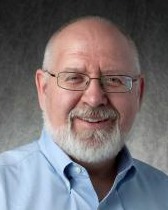In a previous post, I gave a preview of the Social Media and Influence panel that I will be moderating. In this post, I will share my brief remarks....
My story in social media begins in the pre-twitter and pre-facebook days (at least before they became wildly popular) back in 2005. Back then, the culture in physician social media was to be an anonymous blogger. So, we had names like Grunt Doc and Dr. Flea. So when I started blogging, I called myself Doctor Anonymous.
What did I write about? Yes, I talked about patients. No, I don't do that now. But, that was the culture at the time. It was the Wild West. We talked about whatever we wanted to talk about. I wanted to share with readers the frustrations of taking care of patients in this broken health care system. I learned story telling makes things compelling.
Fast forward to now: Why do Physicians need to be on Social Media?
- Patient Education: As you know, there is a lot of bad information out there on the internet right now. When I get asked by patients, I try to direct them to resources online that I have looked at. For example, the CDC and WebMD has good information. From a hospital standpoint, I use Cleveland Clinic and Mayo Clinic as sources
- Advocacy and Reputation Management: When I talk with fellow Family Physicians, I always tell them that we have let other people tell the Family Medicine story and it's the wrong story. We, as Family Physicians, have to be proactive and share what we're passionate about. You can really find a community online. My colleagues have this twitter group called #FMRevolution (Family Medicine Revolution) where we share how cool it is to be a Family Physician. On those bad days at work, I search out the #FMRevolution hashtag, and reading the tweets refresh me and reenergizes me. What about you and your organization? Are you telling our story online, or is someone else defining who you are? What its the online reputation of your organization, hospital or clinic? Have you checked? Tell your own story, or someone else will.
- Social Media at Meetings: Meetings is where I introduce most people to social media, because I get asked to speak a lot at meeting. I'm also happy to sign people up during the meeting, and help them with their first tweet. I show them that twitter can help them take notes at meetings. And, perhaps the best reason I show them about twitter is that it can take the conversation our of this room, out of this city, and you can possibly have conversations around the world.
Finally, as I finish my remarks, I dabble in a lot of different social media platforms. I have a blog, a podcast, on twitter, on Facebook, on youtube, on linked-in and other platforms. I don't think physicians should be doing everything that I'm doing online. But I think that physicians should know that social media is a powerful communication tool that should not be ignored.














































